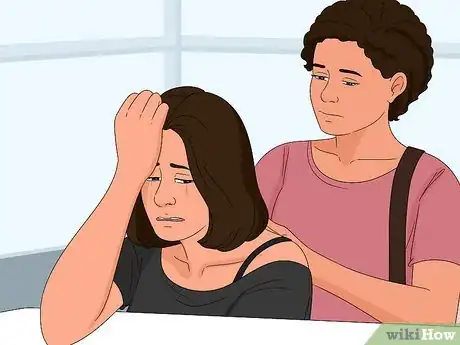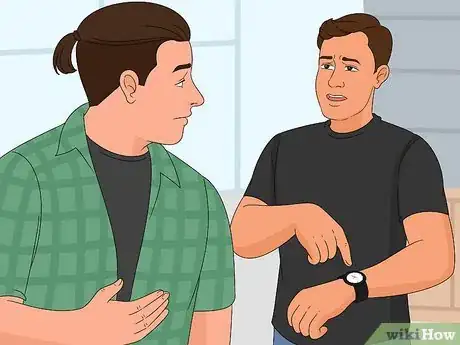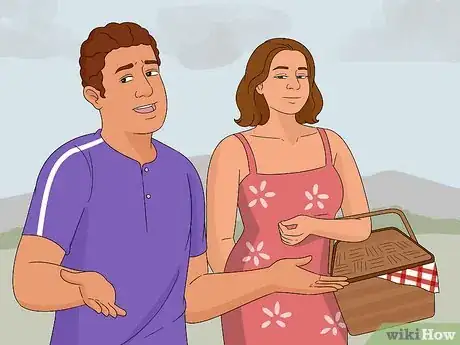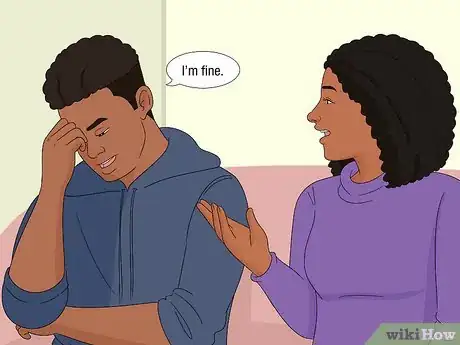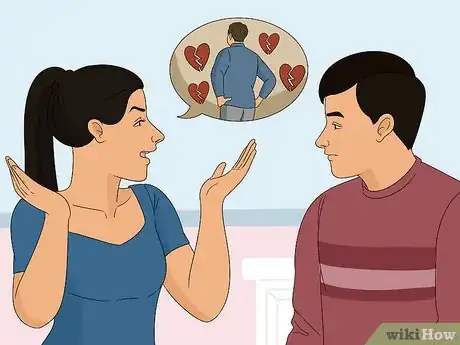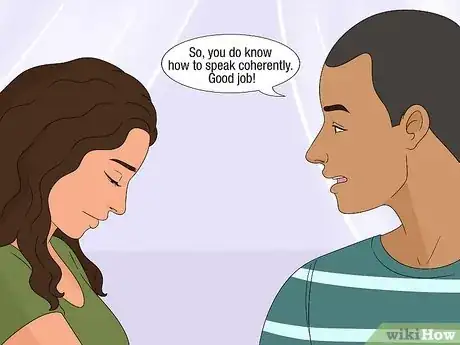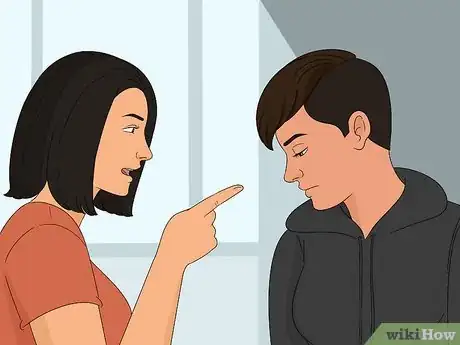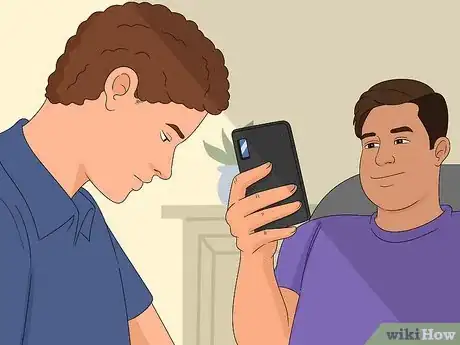This article was co-authored by Jason Polk, LCSW, LAC and by wikiHow staff writer, Hannah Madden. Jason Polk is a Relationship Counselor and the Owner of Colorado Relationship Recovery. With over 12 years of experience as a therapist, he specializes in helping couples build healthy and thriving relationships through counseling. Jason holds an MSW from Newman University, Colorado Springs. He is also a Level II Psychobiological Approach to Couple Therapy (PACT) therapist, Healing Our Core Issues (HOCII) Certified therapist, and has training in Relational Life Therapy (RLT).
There are 10 references cited in this article, which can be found at the bottom of the page.
This article has been viewed 18,221 times.
No one’s relationship is perfect—that’s just a fact of life. But if you find yourself feeling drained, unhappy, or worn out after seeing your partner, you might be in a relationship with a toxic person. In this article, we’ll list some of the most common signs that someone is toxic to be around so you can protect your own well-being and peace of mind.
This article is based on an interview with our relationship counselor, Jason Polk, LCSW, LAC, owner of Colorado Relationship Recovery. Check out the full interview here.
Steps
Expert Q&A
-
QuestionHow do you know you're dating a gaslighter?
 Jason Polk, LCSW, LACJason Polk is a Relationship Counselor and the Owner of Colorado Relationship Recovery. With over 12 years of experience as a therapist, he specializes in helping couples build healthy and thriving relationships through counseling. Jason holds an MSW from Newman University, Colorado Springs. He is also a Level II Psychobiological Approach to Couple Therapy (PACT) therapist, Healing Our Core Issues (HOCII) Certified therapist, and has training in Relational Life Therapy (RLT).
Jason Polk, LCSW, LACJason Polk is a Relationship Counselor and the Owner of Colorado Relationship Recovery. With over 12 years of experience as a therapist, he specializes in helping couples build healthy and thriving relationships through counseling. Jason holds an MSW from Newman University, Colorado Springs. He is also a Level II Psychobiological Approach to Couple Therapy (PACT) therapist, Healing Our Core Issues (HOCII) Certified therapist, and has training in Relational Life Therapy (RLT).
Relationship Counselor One sign is a lack of accountability for their side of the relationship. As a result, they will gaslight you and make you feel bad or stupid for bringing up any issue.
One sign is a lack of accountability for their side of the relationship. As a result, they will gaslight you and make you feel bad or stupid for bringing up any issue. -
QuestionHow do you test if someone is gaslighting you?
 Jason Polk, LCSW, LACJason Polk is a Relationship Counselor and the Owner of Colorado Relationship Recovery. With over 12 years of experience as a therapist, he specializes in helping couples build healthy and thriving relationships through counseling. Jason holds an MSW from Newman University, Colorado Springs. He is also a Level II Psychobiological Approach to Couple Therapy (PACT) therapist, Healing Our Core Issues (HOCII) Certified therapist, and has training in Relational Life Therapy (RLT).
Jason Polk, LCSW, LACJason Polk is a Relationship Counselor and the Owner of Colorado Relationship Recovery. With over 12 years of experience as a therapist, he specializes in helping couples build healthy and thriving relationships through counseling. Jason holds an MSW from Newman University, Colorado Springs. He is also a Level II Psychobiological Approach to Couple Therapy (PACT) therapist, Healing Our Core Issues (HOCII) Certified therapist, and has training in Relational Life Therapy (RLT).
Relationship Counselor You gotta evaluate if your partner is making you seem crazy, irrational, unintelligent, for their subjective experience. These are all great signs, but you're the one that needs to evaluate it.
You gotta evaluate if your partner is making you seem crazy, irrational, unintelligent, for their subjective experience. These are all great signs, but you're the one that needs to evaluate it. -
QuestionHow do you get out of a toxic relationship?
 Jason Polk, LCSW, LACJason Polk is a Relationship Counselor and the Owner of Colorado Relationship Recovery. With over 12 years of experience as a therapist, he specializes in helping couples build healthy and thriving relationships through counseling. Jason holds an MSW from Newman University, Colorado Springs. He is also a Level II Psychobiological Approach to Couple Therapy (PACT) therapist, Healing Our Core Issues (HOCII) Certified therapist, and has training in Relational Life Therapy (RLT).
Jason Polk, LCSW, LACJason Polk is a Relationship Counselor and the Owner of Colorado Relationship Recovery. With over 12 years of experience as a therapist, he specializes in helping couples build healthy and thriving relationships through counseling. Jason holds an MSW from Newman University, Colorado Springs. He is also a Level II Psychobiological Approach to Couple Therapy (PACT) therapist, Healing Our Core Issues (HOCII) Certified therapist, and has training in Relational Life Therapy (RLT).
Relationship Counselor You're going to need to set firm boundaries, because there is going to be pushback from the toxic relationship partner. Also, make sure you get some kind of financial or emotional support for your plans with family and friends, as that is extremely important.
You're going to need to set firm boundaries, because there is going to be pushback from the toxic relationship partner. Also, make sure you get some kind of financial or emotional support for your plans with family and friends, as that is extremely important.
References
- ↑ Jason Polk, LCSW, LAC. Relationship Counselor. Expert Interview. 11 February 2022.
- ↑ https://www.psychologytoday.com/us/blog/in-flux/201608/8-traits-the-most-toxic-people-in-your-life-share
- ↑ https://www.psychologytoday.com/us/blog/in-flux/201608/8-traits-the-most-toxic-people-in-your-life-share
- ↑ Jason Polk, LCSW, LAC. Relationship Counselor. Expert Interview. 11 February 2022.
- ↑ Jason Polk, LCSW, LAC. Relationship Counselor. Expert Interview. 11 February 2022.
- ↑ https://www.psychologytoday.com/us/blog/in-flux/201608/8-traits-the-most-toxic-people-in-your-life-share
- ↑ https://health.clevelandclinic.org/domestic-abuse-how-to-spot-relationship-red-flags/
- ↑ Jason Polk, LCSW, LAC. Relationship Counselor. Expert Interview. 11 February 2022.
- ↑ Jason Polk, LCSW, LAC. Relationship Counselor. Expert Interview. 11 February 2022.
- ↑ https://www.psychologytoday.com/us/blog/friendship-20/201506/20-signs-your-partner-is-controlling
- ↑ https://pubmed.ncbi.nlm.nih.gov/31561731/
- ↑ Jason Polk, LCSW, LAC. Relationship Counselor. Expert Interview. 11 February 2022.
- ↑ https://www.psychologytoday.com/us/blog/when-disaster-strikes-inside-disaster-psychology/201911/toxic-people-how-recognize-and-avoid
- ↑ Hyungbum Kang, MA, MSW, LCSW, MAC. Licensed Clinical Social Worker. Expert Interview. 26 July 2021.
- ↑ https://health.clevelandclinic.org/domestic-abuse-how-to-spot-relationship-red-flags/
- ↑ https://health.clevelandclinic.org/domestic-abuse-how-to-spot-relationship-red-flags/
- ↑ https://www.gottman.com/blog/red-flag-green-flag-what-to-look-for-when-youre-dating/
- ↑ https://www.gottman.com/blog/red-flag-green-flag-what-to-look-for-when-youre-dating/
- ↑ https://time.com/5274206/toxic-relationship-signs-help/
- ↑ https://time.com/5274206/toxic-relationship-signs-help/
- ↑ https://www.thehotline.org/



